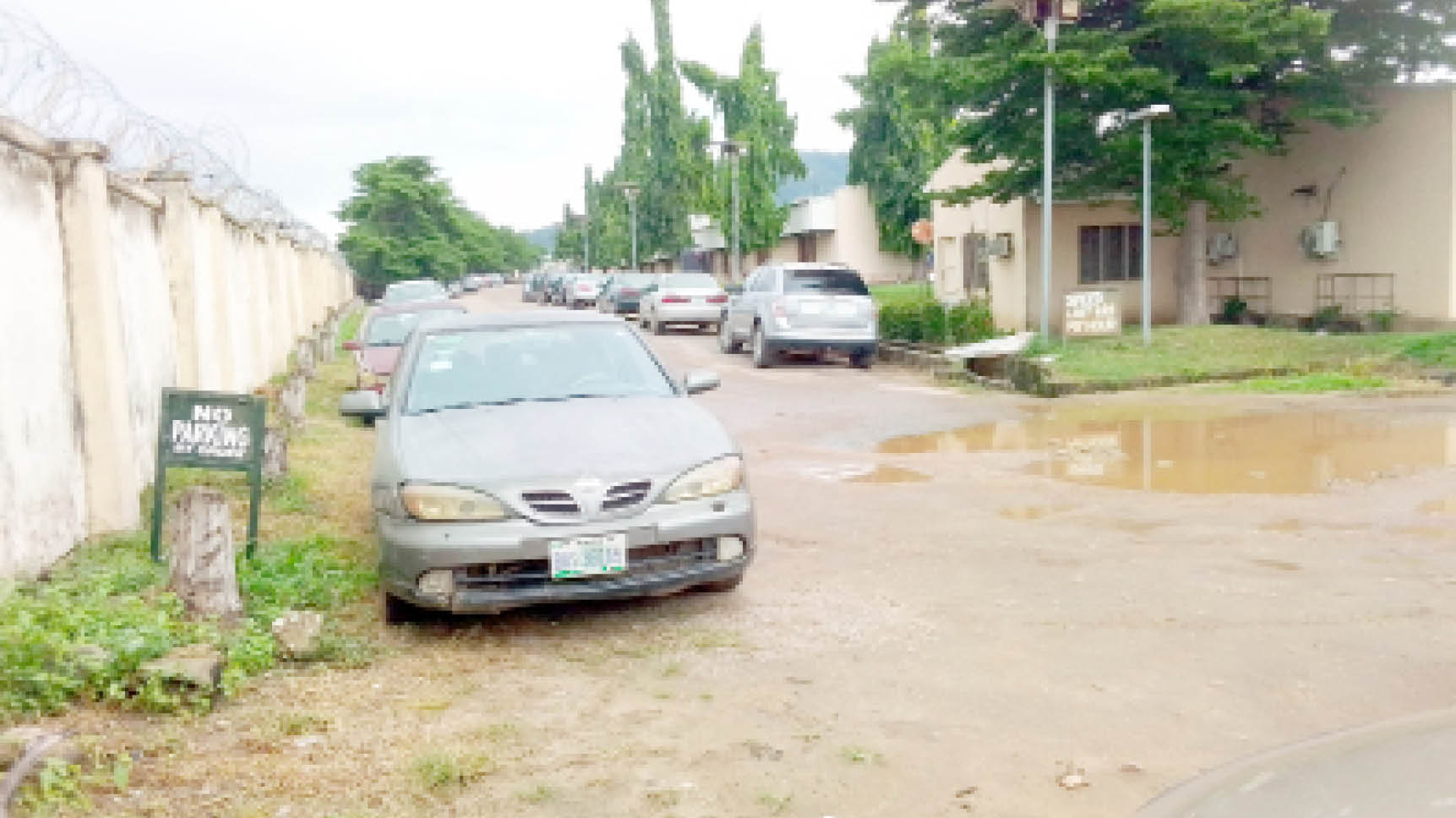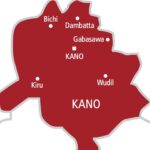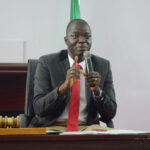The strike by the National Association of Resident Doctors (NARD) has continued to take its toll on patients and their relatives across the country, investigations by Daily Trust have shown.
The association commenced a nationwide indefinite strike on Monday, August 2 following the failure of the federal government to fulfil its promises on salary payment, hazard allowances, medical residency training fees and COVID-19 allowance, among others.
- PODCAST: NRC postpones Lagos – Kano Train Service
- Dogs aided seizure of over 18 tons of drugs – NDLEA
Our findings indicate that activities have been grounded in most public hospitals, with skeletal services offered by consultant doctors for emergency cases and other specialised care.
As a result of the strike, many patients now throng private hospitals while those who cannot afford treatment there battle with pains as they wait and pray for the strike to be called off soon, or resort to self-medication and traditional medicine.
Patients who were admitted to some hospitals before the strike have been left stranded or discharged abruptly as consultants and other medical personnel are overwhelmed.
Others have been told to return for admission when the strike is called off.
Patients recount effect of strike in Kano
In Kano, patients in many of the public hospitals lamented that the strike was aggravating their pains and health conditions as they had to wait for hours to see an available consultant.
Our correspondent learnt that many patients with pressing health issues had either been discharged by the hospital or left to explore alternative care elsewhere.
A female patient who was booked for surgery before the strike said, “The strike has affected everything, and my health is worsening every day. I don’t have money to go to a private hospital, so I am confused.”
Hajiya Fatima Ahmas said she came from Kaduna to seek quality health care at the Aminu Kano Teaching Hospital (AKTH) but she was told to revisit the hospital whenever the strike is called off.
Another patient, Malam Abdullahi Hamid tearfully recounted how his seven-year-old daughter who was in pain as a result of burns she sustained could not receive the required urgent attention because of the strike.

“I am appealing to the government to negotiate with the doctors so that we can be attended to,” he said.
Ado Abdulqadir, who was at the hospital to see a doctor over his kidney ailment, appealed for the speedy resolution of the issues that caused the strike.
Malam Abubakar Usman also said he was moving his son from the hospital to a nearby health facility as he came from Saminaka and didn’t have any relative in the state to stay with.
Our correspondent also met Amina Muhammad and Malama Aisha Aminu who were trying to move their relatives from the hospital to private health facilities because their conditions were worsening. They called on the government to come to their rescue.
Hajiya Hafsa Abubakar, a relative to one of the patients, blamed the government for the strike, saying officials neglected the health of the masses while travelling out of the country to access medical care.
Frustration in Ilorin
In Ilorin, the Kwara State capital, patients expressed frustration over the industrial action, saying it had caused them pain and anguish.
At the time our correspondent visited the University of Ilorin Teaching Hospital (UITH), few patients were seen at the Consultant Outpatient Department (COPD) and General Practice Clinic (GPC), a place hitherto overcrowded by those waiting to see doctors.
Pastor Ojo Paul, 50, said the strike had affected the quality of care for his son at the hospital.
His 22-year-old son, Ojo Favour, a medical student from a Russian university, was referred to the hospital from hospitals in Saki and Ogbomosho in Oyo State due to lack of personnel.
The distraught father, whose son was involved in a vehicle accident, lamented that due to the ongoing strike, the available doctors had been prescribing drugs instead of the surgery his son required.
He said, “He was placed on oxygen from Ogbomosho down here and was stable when we got here. He had femur dislocation and needs to undergo surgery, but the doctors’ strike has affected the required attention for him.
“He just came home to (Saki) to invite us to his graduation slated for October and had a car accident, alongside his friend.
“The few available doctors are just coming to prescribe drugs. I was told that if they did the operation there would be nobody to monitor him. The operation has not been done.”
Another caregiver, Saka Yusuf, whose son required medical treatment, said he spent several hours waiting for doctors, but to no avail.
The president of the Association of Resident Doctors, UITH chapter, Dr Badmus Funsho Habib, said though consultants, nurses, pharmacists and others were on the ground, patients would always feel the impact when resident doctors, who make about 65 per cent of the workforce, withdraw their services.
“Going on strike is difficult for us, but when we have exhausted all means of crisis resolutions, be it advocacy and negotiations, signing of the memorandum of understanding (MoU), but reneged by the government, we have no option than to go on strike,” Badmus said.
He added that some of his members at the University of Ilorin Teaching Hospital were owed about six months’ salaries under the guise of moving the affected doctors to the Integrated Payroll and Personnel Information System (IPPIS) platform.
Patients in Benue seek alternative care
Some patients at the Benue State University Teaching Hospital (BSUTH) have resorted to seeking alternative medical care since the resident doctors embarked on strike.
Our correspondent who visited the hospital in Makurdi observed that patients with special health issues who couldn’t be denied health care services are being attended to by consultants and other caregivers.
Those already on admission within the facility were being attended to, while those not hospitalised at the time the strike commenced have been told to return when the doctors resume work.
When contacted, the head of the public relations unit at the BSUTH, Cephas Hough, said everything was under control as the other arms of medical personnel on duty were doing their best to bridge the gap created by the striking doctors.
Strike leaves patients stranded at ABUTH, only critically ill admitted
Usman Auwal said two of his brothers who were admitted at the Ahmadu Bello University Teaching Hospital (ABUTH), Shika in Zaria were discharged due to the strike by the NARD. They are now receiving treatment at home.
Like Auwal, Abdulahi Ibrahim was also forced to leave the hospital with his father. He said, “We had stayed in the hospital for days with no one attending to us, then later it was announced that we should go home. We have no choice but to leave and look for another hospital because we could not leave our father in his condition.”
Our correspondent gathered that the only patients admitted or accepted in the hospital are those with critical health challenges.
Prayers for call-off in FCT
A patient at the National Hospital, Abuja, who identified himself as Hassan, who had an appointment for a routine check this week, could not be attended to as a result of the strike.
He told our reporter that he could not afford the cost of his test and treatment at a private hospital, so he decided to wait for the strike to be called off.
Another patient at the hospital who craved anonymity said even though he was attended to because of his chronic ailment, the situation was not the same when resident doctors were around.
He said he was praying fervently for the strike to be called off so that those who are not being attended to could access care.
When our reporter visited the University of Abuja Teaching Hospital, Gwagwalada, the usual beehive of activities was absent. Only those on appointment with consultants and emergency cases were attended to.
A patient who visited the hospital yesterday told Daily Trust that the consultant managing his case had to see only 10 patients, adding that many of the consultants who had been rendering services for special cases were overwhelmed.
Asked if the association was considering the effect of the strike on patients, the national president of the NARD, Dr Uyilawa Okhuaihesuyi, declined comments.
The immediate past president of the association, Dr Roland Aigbovo, said the doctors continued the strike because they could not be working without salaries. He said issues of unpaid salaries on the IPPIS platform and hazard allowances, among others, had not been resolved.
Consultants turn heroes in JUTH
Consultant doctors and nurses are being praised for their perseverance and medical services at the Jos University Teaching Hospital (JUTH) despite the strike.
Our correspondent who visited the hospital observed that consultants and nurses worked in various shifts to attend to patients.
A caregiver at the male ward of the hospital, Adda’u Ussain Magaji, whose patient suffers from sickle cell anaemia and is on admission, said that considering his critical condition, some doctors contributed N35,000 for minor surgery on his chest when his vein could not be traced.
He said, “We have been in the hospital for the past one month. There is no way we will go because my patient is in a critical condition. When the strike started, he was unconscious; I think it was for that reason that the doctor and few of his colleagues gave us financial assistance.”
Good new from Kogi
Consultant doctors have assumed full responsibility for attending to patients at the Federal Medical Centre (FMC), Lokoja, the Kogi State capital due to the strike action by resident doctors.
Medical personnel who spoke to Daily Trust Saturday said work was going on as usual, except that consultant doctors were overstretched.
A patient, Malam Salifu Okeji, who was referred to the centre for treatment from Abuja, said consultant doctors were paying adequate attention to patients in the centre.
Patients discharged from Lagos hospitals
When our correspondent visited the Lagos State University Teaching Hospital (LASUTH), she met a relative of a patient who had just been discharged.
The caregiver said, “My sister has been discharged. We are very glad that we are asked to go home. With the strike in the hospital, there was no care. She has been given drugs that will stabilise her. We were asked to return when the strike ends.”
It was gathered that new patients are not being admitted, while old ones are being discharged by consultants who attend to them.
The waiting rooms were empty and only a few consultants had their doors open at 4 pm on Thursday.
When contacted, the president of the NARD, LASUTH chapter, Dr Ojekunle, noted that the doctors would not resume until their demands were met.
Patients resort to self-help, private care in Rivers, Bayelsa
Some patients in Rivers State, who could not access government hospitals due to the strike, said they resorted to self-help, as well as visiting private hospitals for medical care.
Mark Abuna, a resident of Oyigbo and a diabetic and hypertensive patient said he resorted to buying his prescribed drugs on his own when he could not access the hospital.
Another resident who did not want his name in print said his mother, who had a partial stroke and was being managed at a public hospital in the state, had to be moved to a private facility because of the strike.
“Although we have spent so much money, we had to do that to save her life,” he said.
Our correspondent who visited the Federal Medical Centre (FMC) in Yenagoa and the Niger Delta University Teaching Hospital (NDUTH), Okolobiri observed that resident doctors were not on duty to attend to patients, while only a few consultants were providing skeletal services.
An official who craved anonymity said consultants were only rendering skeletal services and only attending to patients whose problems were severe.
Mrs Duncan, a patient at the Federal Medical Centre, said she could not afford the cost of care in private hospitals, and so, would wait for the strike to be called off.
She, however, chided resident doctors for embarking on strike at a critical time in the country.
Skeletal services at Gombe Specialists hospital
In Gombe, consultants and other senior doctors are providing services to patients on admission.
At the Gombe Specialists Hospital, the senior doctors were seen attending to patients on admission at the wards and the Accident and Emergency (A&E) unit of the hospital.
It was gathered that only the General Out-Patient Department (GOPD) was closed and patients discharged, however, those under critical condition were transferred to the A&E unit.
The Chief Medical Director (CMD) of the hospital, Dr Mu’azu Shuaibu told Daily Trust that senior doctors on level 15 and above as well as consultants, who are not part of the strike, are now attending to the patients.
“We also have some specialists from the Federal Teaching Hospital (FTH) Gombe who have been providing services to beep up the manpower. All doctors on level 15 and above who are not on strike are found in every department. The visiting doctors are also providing services,” he said.
Ojoma Akor, Seun Adeuyi (Abuja), Mumini Abdulkareem (Ilorin), Ado Abubakar Musa (Jos), John Adama (Lokoja), Hope Abah Emmanuel (Makurdi), Abdulkadir Shehu (Kaduna), Lubabatu I. Garba (Kano), Risikat Ramoni (Lagos), Victor Edozie (Port Harcourt), Bassey Willie (Yenagoa) & Haruna Gimba Yaya

 Join Daily Trust WhatsApp Community For Quick Access To News and Happenings Around You.
Join Daily Trust WhatsApp Community For Quick Access To News and Happenings Around You.


